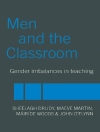This book presents a collection of chapters—both empirical and conceptual—that challenge existing paradigms of learning and teaching, provides examples of pedagogical spaces and practices that nurture future-oriented learners, explicates identities and transitions in learning, and offers alternative frames for moving forward.
Educational structures have proven remarkably resilient. More often than not, pedagogical designs still privilege the lecture-tutorial format, front-end loading and the positioning of the ‘teacher’ as expert. In a similar vein, pedagogical spaces tend to privilege the formal educational institution and its discourses, rather than productively engage with naturally-occurring learning spaces at work and in communities.
To better prepare and support learners for dynamically changing futures, we need to truly flip the lens from teaching to learning, positioning at the core, the learner in contexts where learning and becoming occurs. This means considering what counts as a future-oriented learner and educator, recognising the importance of evolving identities, transitions and pathways that facilitates the processes of being and becoming. Equally important is the design and appropriation of pedagogical spaces and practices that are in themselves dynamic and future-oriented. This book questions the current delineation between the spaces of work, learning and communities.
Inhoudsopgave
Part I: Introducing the focus on learners.- Chapter 1. Introduction: Flipping the lens from educator to learner.- Chapter 2. Key constructs: conceptions of learners’ future-orientation, identities, contexts and practices.- Part II: Framing the issues.- Chapter 3. Rethinking Learning for a High Skills Economy: What a cultural-historical approach can offer.- Chapter 4. Learning in a designed world: Symbolic technologies and epistemic practices in the evolution of professional knowing.- Chapter 5. Researching lifelong learning policy: Concepts and Tools.- Chapter 6. Future of work, transitions, and future-oriented learning.- Part III: Flipping the lens in practice.- Chapter 7. Enhancing learning in the workplace.- Chapter 8. Towards Expertise—Operationalizing Identity Development and Considerations for the Singapore Work-Study Programme.- Chapter 9. Dialogic inquiry: a pedagogy for foregrounding future-oriented learners and their learning.- Chapter 10. Adult Learners’ Sense-making in Blended Learning Environments: Healthcare and Workplace Safety and Health (WSH).
Over de auteur
Helen Bound (Ph D), Institute for Adult Learning, Singapore University of Social Sciences, Singapore
Dr Helen Bound is Deputy Director, Research and Innovation Division, Institute for Adult Learning. Helen’s research interests focus on learning across a wide variety of contexts, including workplace learning, learning in high technology environments, professional learning and learning through collaborative activity. She is also interested in the contexts of learning and has published widely on a range of topics, including, learning spaces between classroom and work, specific pedagogical approaches and tools to support learning, competency development, professional development of continuing education/vocational teachers, workplace learning, and learning and development of non-permanent workers. Helen has a background in vocational training and education (University of Tasmania, Australia) and before that spent some years as a trade union trainer and running her own training and development business. Prior to that, her experience teaching in Australian secondary schools is the source of her deep interest in pedagogy and learning. Helen is a member of the Committee for Researching Work and Learning International Conference Series; has co-edited special editions of Journal of Work and Learning, is a member of the editorial and review boards for Australian Journal of Adult Learning; Futuristic Implementation of Research in Education, and International Journal of Vocational Education and Training Research. Her other books include Towards a new understanding of workplace learning: The context of Singapore and How non-permanent workers learn and develop. Challenges and opportunities.
Dr Jennifer Pei Ling Tan OCBC, Singapore
Dr. Jennifer Pei-Ling Tan is Vice President of Learning and Development at Oversea-Chinese Banking Corporation Limited. She leads the Learning Technology and Design team at OCBC Campus that designs and drives technology-enhanced learning innovations to enable future capability build, promote learning agility, and foster a thriving learning organization for sustainable growth. Having spent the early years of her professional life in business advisory and assurance, Jen brings a unique combination of business, strategy and management skills to bear in her current role as an applied learning scientist and innovator. She has held various academic roles including Assistant Dean (Learning Analytics and Knowledge Mobilization), Programme Director (Lifelong Learning, Cognition and Wellbeing) at the National Institute of Education Singapore, and Research Fellow at the ARC Centre of Excellence in Creative Industries and Innovation, Queensland University of Technology, Australia. She forged close partnerships with schools, universities, policymakers and industry partners to design and scale technology-enhanced collaborative learninginnovations that cultivate 21st century literacies, lifelong learning and wellbeing in young people. Jen is passionate about leveraging technology affordances to provide learners with more relevant, meaningful and transformative learning experiences and life outcomes. She holds degrees in Philosophy, Education, Business Information Systems, and Accountancy.
Associate Professor Lim Wei Ying, Rebekah, Singapore University of Social Sciences, Singapore
Lim Wei Ying, Rebekah is Associate Professor and Director of the Teaching & Learning Centre at the Singapore University of Social Sciences (SUSS). She leads the Centre in areas of academic development of lecturers, academic support for learners, and Scholarship of Teaching & Learning. Her research interests include professional identities, teacher learning and technology-enabled pedagogy; areas in which her research grant awards and publications are based on. Her other awards include the Hewlett Packard Innovation in IT in Education, Dean’s commendation for research award, and the teaching excellence award 2011 & 2013. She has served as consultant to both local schools and international bodies, such as the Commonwealth of Learning, and more recently Southeast Asian Ministers of Education Organization, Southeast Asian Regional Centre for Graduate Study & Research in Agriculture (SEAMEO SERCA) in areas of professional development and technology-enabled learning












